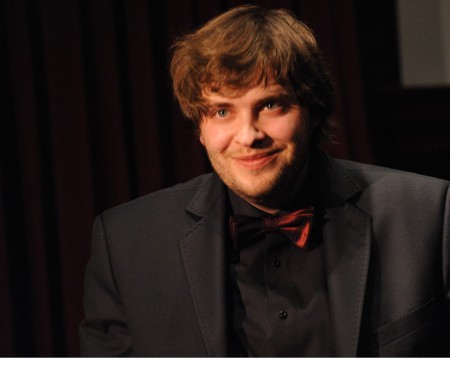2009 Paderewski Festival – A Spirit Reborn In Paso Robles
PeninsulaReviews.com - November 13, 2009
By Lyn Bronson
Sic transit Gloria mundi −“How fleeting is the glory of the world.” From 1890 to 1941, Paderewski (his name often mispronounced by the less sophisticated as “Pader-ROOS-ky”) was a superstar celebrity known throughout the civilized world. His distinguished image, tall, elegant and with a noble face framed in a halo of white hair, was instantly recognizable, thanks to the mountains of publicity he received in his lifetime. Wherever he went this great Polish pianist and statesman, known for his enormous success as a pianist, and also as the composer of the ever popular “Minuet in G Major,” attracted crowds who pressed around him in great numbers eager to shake his hand or say a few words.
In 1913 troublesome pains in his hands brought Paderewski from San Francisco to Paso Robles for the healing hot springs and mud baths. Discovering the magnificent Paso Robles Hotel, Paderewski fell in love with the area and purchased several thousand acres of ranch land where he proceeded to grow Zinfandel grapes, and almonds.
Aniela Strakacz, the wife of Paderewski’s personal secretary, described a visit to Paso Robles on March 26, 1921. “At midnight our train slowed down and the conductor called out our station. Looking through the train widow we saw the sky luridly aglow. My first thought was that the station was burning down. The crowd that had come out to greet Paderewski was so great it was almost impossible to descend from the train. Despite the overwhelming number of people, our reception was dignified, solemn and majestic. As the car with the Paderewskis in it departed for the hotel, it inched along slowly between an honor guard consisting of two rows of automobiles in military formation, followed by people holding flaming torches that turned night into day.”
Paderewski Festival 2009 – Gala Concert
PeninsulaReviews.com - November 15, 2009
By Lyn Bronson
The 2009 Paderewski Festival wound down to a spectacular finish last night as Polish pianist Hubert Rutkowski played a whale of a concert in the Grand Ballroom of the Paso Robles Inn. During this concert he served up to us a lot of unfamiliar music, all of it performed in the grand manner. In a sense this concert was a like a time warp back to the late 19th century. Today, we live in an Urtext generation where faithfulness to the printed score has become almost an obsession. Scholars earnestly debate about how most accurately to perform trills and ornaments, appoggiaturas and grace notes, slurs, lengths of rests, duration of staccato notes, when and where to permit tempo fluctuations, and a great variety of other minutiae, which, while important, can sometimes deflect us from what is truly important: making music so compelling that we engage the hearts and minds of our listeners and move them emotionally.
This obsession with faithfulness to the score would certainly have surprised Franz Liszt, who probably seldom played anything exactly the same way twice – there is a famous story, perhaps apocryphal, of Liszt rehearsing the Kreutzer Sonata with a violinist, and in each succeeding rehearsal adding in more personal touches so that finally he had interjected so many ornaments and small cadential passages that the violinist was infuriated. Chopin, too, might also be surprised with our obsession for playing the score exactly as he has composed it. As reported by Jean-Jacques Eigeldinger (in his book “Chopin: Pianist and Teacher: As Seen by his Pupils”), while teaching his Nocturnes and Waltzes to his students, Chopin frequently composed alternate passages on the spot (some of them extraordinary departures from the published text) and immediately pasted them into the student’s copy.

Pianist Hubert Rutkowski
Although Rutkowski didn’t add a lot of improvised embellishment or slip into the score his own cadential passages, he certainly did his share of altering dynamics and tempos many times during the evening. Although it sometimes seemed self indulgent, his playing was so authoritative and compelling that we found it easy to accept him on his own terms. It was immediately obvious that he was not trying to be the next Vladimir Horowitz or Artur Rubinstein, but rather the first Hubert Rutkowski, and in this he succeeded admirably and totally. Hubert Rutkowski is an “original.” What we heard during this recital was the grand style of Romantic playing that hearkened back to Anton Rubinstein and Busoni, but it was still uniquely “Rutkowski.”

